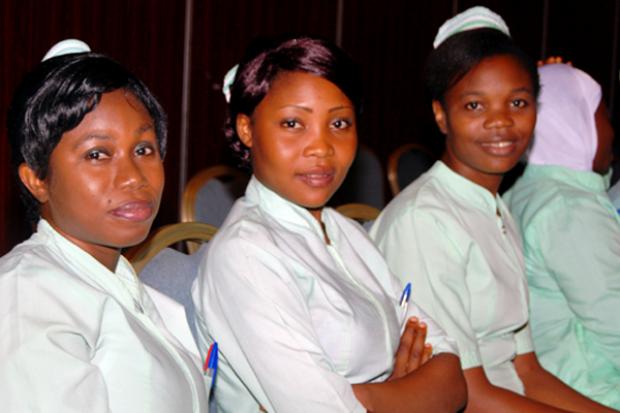National Association of Nigerian Nurses and Midwives (NANNM) has called for concerted efforts by stakeholders to curb the menace of quackery in the profession.
The President of the association, Mr Abdulrafiu Adeniji, made the call at a news conference to mark the end of the commemoration of International Nurses Week and the International Day of Midwives on Sunday in Abuja.
International Nurses Week is an annual event commemorated from May 6 to May 12 and this year’s event has “Nurses: A Leading Voice: Health is A Human Right” as its theme.
The International Day of Midwives is commemorated on May 5 and has as its 2018 theme “Midwives: Leading with Quality Care”.
Adeniji identified quackery, mismanagement, insecurity, poor remuneration, inattention to the plight of nurses and other health workers as major challenges bedevilling the profession, thereby hindering the goal of providing quality care to citizens.
He said even though there were challenges, the menace of quackery could create huge danger to the healthcare system which was deadlier than effects of viral hemorrhagic fever combined.
He, therefore, noted that “the fight against quackery should not be left for professionals alone.
“Stakeholders and indeed the entire society must join hands with practitioners to tackle the menace.
“All hands must be on deck to deal with the problem, just the way we fought the scourge of Ebola disease and Lassa fever.
“The process of health facility classification, task sharing and shifting must take note of professional ethics, standards of practice, professional jurisdiction and safety of life.”
X-raying the roles of nurses and midwives, Adeniji emphasised that Universal Health Coverage and Sustainable Development Goals (SDGs) would remain a mirage if the professionals were not encapsulated into the midstream of healthcare services, policy formulation and execution.
The association president said nurses and midwives could provide 70 per cent of needed healthcare services to women of child bearing age, ante-natal, post natal and childhood care if adequately trained, empowered financially and materially.
He added that “nurses and midwives can provide evidence-based and people-centred reproductive health services and this is a privilege that will gladly bear despite the numerous challenges they face.”
Adeniji, therefore, said the commemoration of the days was aimed at honouring the dedication and services of nurses and midwives, as well as ensuring that the attention of government and policy makers was drawn toward the importance of the professionals.
He identified this year’s event as historic “because it marks the 40th anniversary of the famous Alma-Ata Declaration on Health in 1978.”
The Declaration was adopted at the International Conference on Primary Health Care (PHC), Almaty, formerly Alma-Ata, Kazakhstan (formerly Kazakh Soviet Socialist Republic).
Adeniji said the declaration stressed the need for urgent action by governments, health and development workers and the global community to promote the health of all people.




